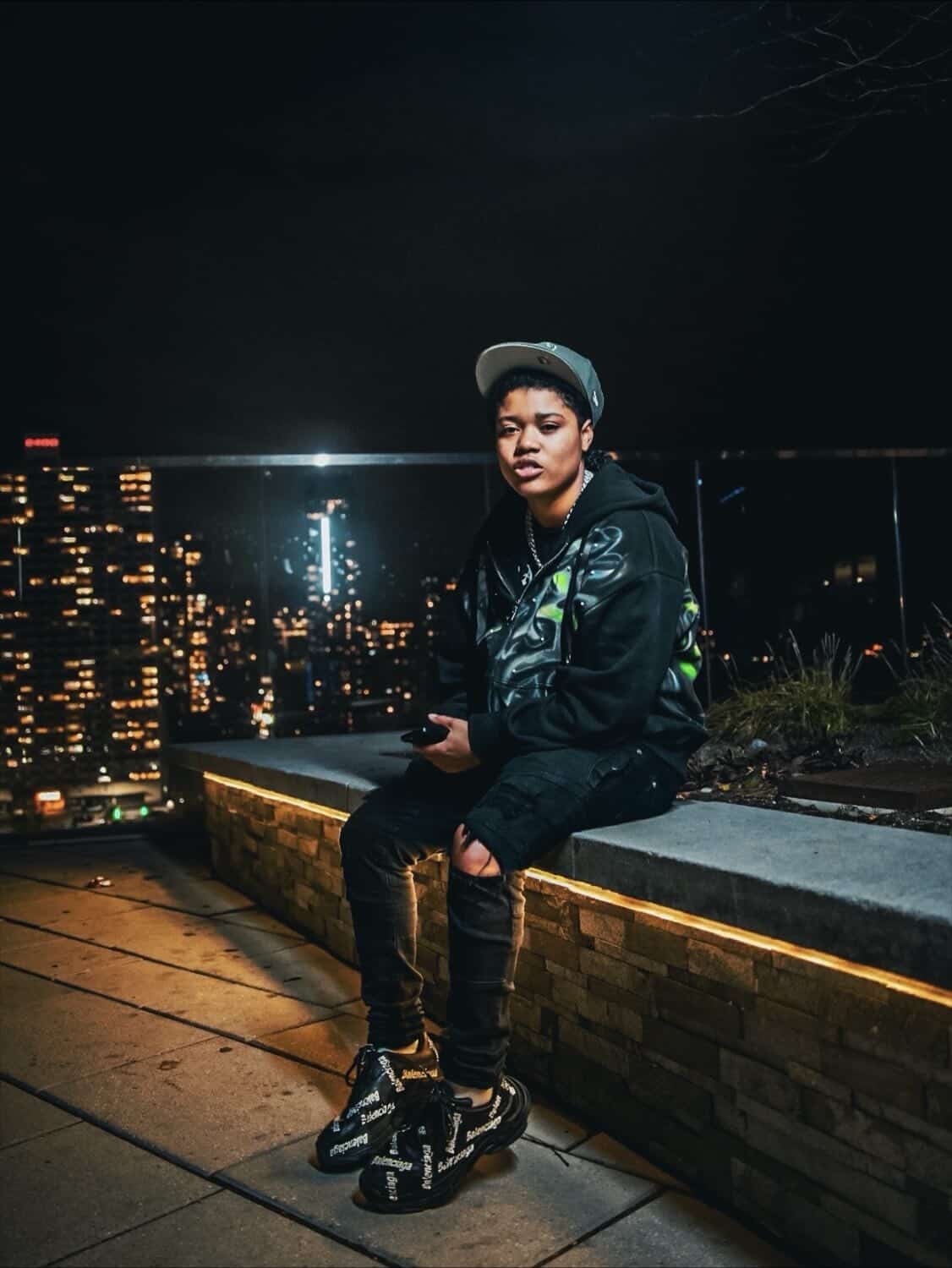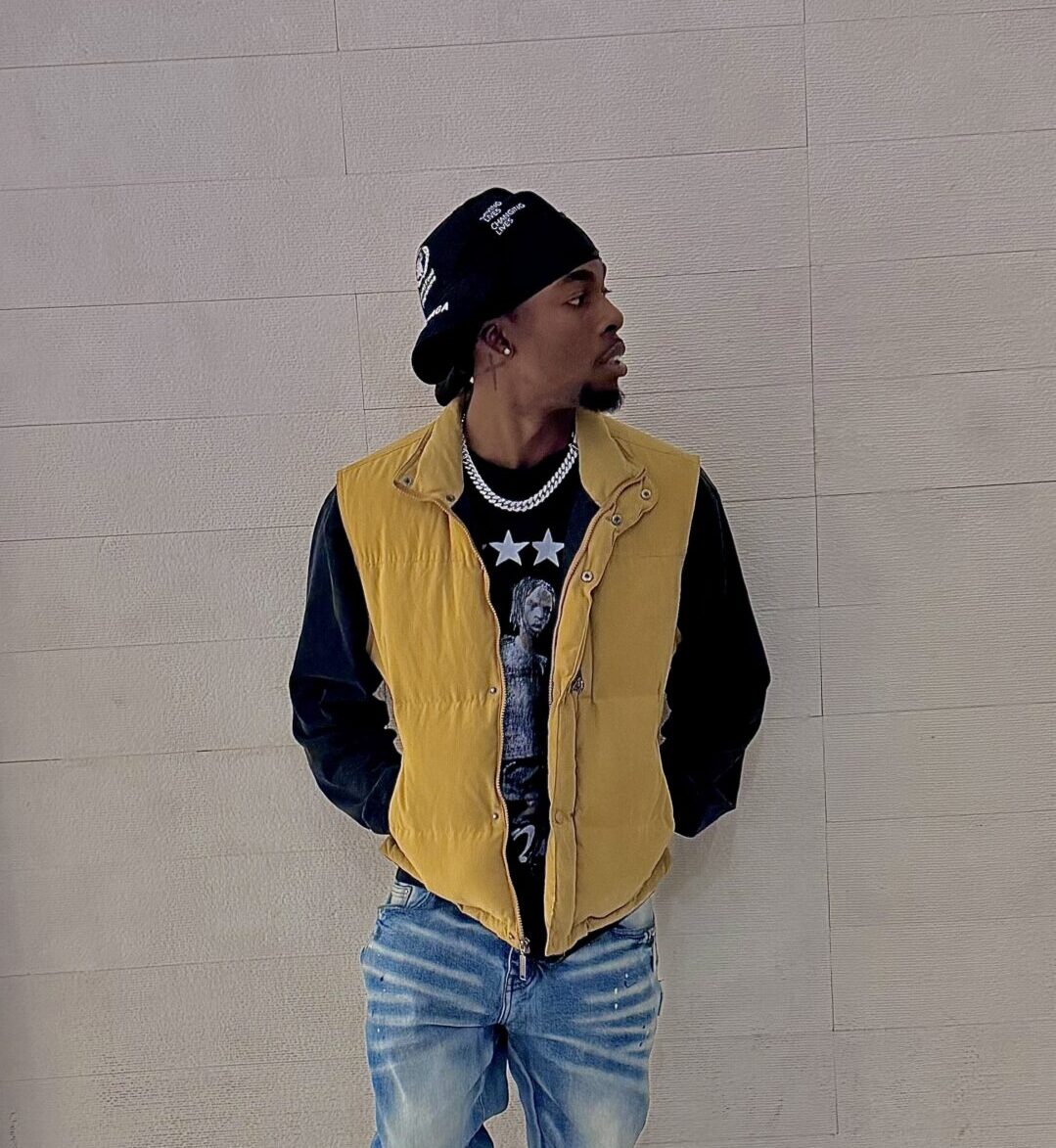Entertainment
LUI

About LUI:
From the slums of Peru, LUI and his family first had to conquer extreme poverty for the chance of a better life. “I come from Peru where we don’t envision big goals but are focused on getting enough to eat, making it through the day. I came to America from literally nothing. My neighborhood back home didn’t even have streets or sidewalks, just dirt.”
As most who share his background, LUI found an escape and inspiration in music. His first memories as a child are as a performer in his family’s music group. “My first music memory is me dancing at the age of 3 to the music my family was playing one day back in Peru. My uncles played different cultural instruments and I would be the performer.”
At age four, his parents divorced, but not before they’d worked and saved enough to immigrate to the United States. LUI and his mother moved to Virginia, while his father moved to New Jersey. Growing up his mother instilled in him the importance of education, but also continued to feed his passion for music. Just before he relocated to New Jersey to live with his dad, his mother gifted him with his first guitar, and he wrote his first song. Even after the move, she would continue to be a driving force in his life.
As things progressed, darker days were on the horizon. Just after he graduated from high school, his mother would succumb to Cancer. He honored her memory by going to college and pursuing a degree in psychology. However, no matter where he went in life, his love of music lingered in the back of his mind and soon became too loud to ignore.
“My mom’s number one goal was for me to come to the US and have a better life. One day in 2018 it clicked for me, her dreams and my passions could co-exist. I realized that music could provide the life my mother dreamed of for me, and I hit the ground running.”
Inspired by artists like Tego Calderon, Michael Jackson, Akon, Eminem, 50cent, Arcangel and Don Omar, LUI is determined to be heard. the bilingual emcee has released 4 complete EPs, “Thoughts in My Head”, “Time to Eat”, “Graduated”, and “Foreigners World”. As he moves his career forward, he leans on the lessons of perseverance learned from his parent’s example. “I’ve watched my mom and dad work harder than anyone I know. They are my inspiration, where I get my drive. I am hungry for success. I believe my only inherent talent, I just don’t give up.”
Entertainment
Zay Boogie: Philadelphia’s “Different Type” Rising From Pressure

At just 23 years old, Zay Boogie is carving her name into the soundscape of Philadelphia with a presence that feels bigger than the city limits. Born Tyzahe (pronounced Ty’zay), the Northeast Philly native turned a childhood nickname into a brand that now carries weight. “Zay” was already her name in the streets, but when a close friend compared her to Ace Boogie from Paid in Full, the name Zay Boogie stuck — and the energy behind it never left.
But this story isn’t about a nickname. It’s about transformation.
Zay Boogie began taking her craft seriously in 2022–2023, during one of the most pivotal and painful moments of her life — after one of his closest friends was incarcerated. While dealing with her own legal battles, including fighting an attempted case for years, time spent in jail, and months on house arrest, she made a decision: music wouldn’t just be a hobby. It would be her therapy, her escape, and ultimately her investment.
Inspired by her brother’s relentless belief in her and her own self-awareness, Zay realized her talent wasn’t regular — it was rare. Not just musically, but personally. Her character, her resilience, and how she carries herself separate her from the crowd. She describes sound, brand, and style in two words: “Different Type.” In her own words, “IM RARE.”
Influenced by artists like A Boogie wit da Hoodie — not just for the music, but for the authenticity — Zay Boogie moves with a 100% real mentality. It’s not about gimmicks. It’s about presence. Energy. Truth. She believes you have to be around her to fully understand it. The music speaks, but the aura confirms it.
And the numbers are already backing it up.
Every record she’s released has crossed over 10K streams. Her single “Loyalty” reached over 85K views, with multiple releases pushing past the 10K mark or right on the edge. She’s burned down stages, caught the attention of A&Rs and established artists, and steadily built momentum — all while navigating court dates and staying solid for her incarcerated brother, who also manages her.
For Zay, this isn’t just music. It’s strategy.
“Music is 25%. Business is 75%.” That’s the message she stands on. She wants upcoming artists to understand that talent alone isn’t enough — you have to stack your paper, learn the business, and treat your career like an investment.
Currently, Zay Boogie is working on new singles and an upcoming EP, though he’s keeping the title under wraps for now. What fans can expect this year? More visibility. More engagement. More Zay. And of course, more heat.
Looking ahead, she has his sights set on collaborations with Lil Tecca, Tory Lanez, Drake, and of course, A Boogie himself — artists who blend melody, hunger, and star power the way she intends to.
Through adversity, courtrooms, and chaos, Zay Boogie found clarity. The moment she truly heard herself and said, “Yeah… you different,” was the moment everything shifted.
When it’s all said and done, she doesn’t just want to be remembered as a rapper.
she wants to be remembered as a creator — someone who made magic happen.
And if her trajectory continues the way it’s going, Philadelphia won’t be the only place saying her name.
Entertainment
Born to Stand Out: The Rise of Diffrnt

At just 23 years old, Diffrnt Breede, who now simply goes by Diffrnt, is proving that standing out isn’t a choice it’s a calling.
Born Calvin Cook in Hamilton, New Jersey and raised in Trenton, New Jersey, Diffrnt always knew he wasn’t cut from the same cloth as everyone else. The name came to him back in grade school, during a time when fitting in felt impossible. While others tried to move as a crowd, he felt disconnected like he was wired on another frequency. Instead of forcing himself to blend in, he embraced the truth: he wasn’t meant to fit in. He was born to stand out. That realization became his identity.
Now based in Philadelphia, Pennsylvania, Diffrnt carries that same energy into his music raw, intentional, and unapologetically authentic.
His love for music was born in the church. The emotion in the vocals, the power in the instruments, the spirit in the room it moved him in a way nothing else ever had. By age 10, he was already writing. By 12, he recorded his first single. At 15, he made a decision that would define his life: no matter what came his way, music was the path. But the journey wasn’t easy.
Diffrnt has survived experiences that would break most people narrowly escaping death, facing homelessness, enduring betrayal from people who were supposed to love him, and battling depression. Yet through it all, he discovered something greater than pain: purpose. The biggest obstacle he overcame wasn’t the streets or circumstances it was himself. Once he got out of his own way and put his trust in God, everything shifted.
When it comes to influence, Diffrnt doesn’t follow trends he follows calling. He believes his greatest inspiration is the gift God gave him. Music is the only space where he feels completely free, completely aligned, completely himself. While he admires artists like Drake for their ability to translate thoughts and emotions into timeless records, Diffrnt makes it clear: he studies greatness, but he refuses to copy it. And that’s exactly what sets him apart.
In an industry crowded with repetition, Diffrnt moves in the opposite direction. He experiments with sound. He sharpens his bars. He elevates his flows. He doesn’t just rhyme he speaks with intention. Every verse paints a picture. Every record carries emotion. He’s not just rapping over beats he’s building worlds through words.
His upcoming single, “Never Settle,” dropping in March, is a statement piece. It strips away distractions and highlights his lyrical depth no hiding behind melodies, just pure pen. Following that, fans can expect a summer EP packed with anthems around June or July, with another potential EP arriving in late fall.
After taking a brief hiatus from releasing music, 2025 marked his return and not quietly. This year is about expansion, elevation, and a full-scale takeover. New sounds. Sharper visuals. Bigger moments. Diffrnt isn’t easing back into the game he’s kicking the door in. But beyond the music, his message is bigger.
It’s okay to be yourself. It’s okay to be Diffrnt.
He wants people to understand that purpose lives in authenticity. When you stop trying to move like everyone else and start leaning into who you truly are, everything changes. Even if you only impact one person, that impact matters.
When it’s all said and done, Diffrnt wants to be remembered as someone who never took no for an answer someone who changed the game by refusing to play it like everyone else.
And if the world hasn’t caught on yet?
It will.
Because Diffrnt isn’t next.
He’s necessary.
For more exclusive update updates click the links below:
https://www.instagram.com/
https://music.apple.com/us/
https://youtube.com/@
https://open.spotify.com/
Entertainment
Tiffany Queen: From Digital Stardom to Mainstream Pop Force

Tiffany Queen is emerging as a bold new creative powerhouse in the entertainment world—bridging the gap between digital influence, fashion, and chart-ready music. What began as captivating followers on social platforms has quickly transformed into a multi-faceted career that’s drawing attention from fans and industry insiders alike.
Growing up with a natural flair for performance and visual expression, Tiffany first made her mark as a model and social media trendsetter, cultivating a devoted community on platforms like Instagram and TikTok. Rather than simply chasing likes, she used her early content to develop a distinct voice and a recognizable personal brand—one grounded in authenticity, bold style, and creative risk-taking.
Her digital growth wasn’t accidental; it was strategic. Tiffany treated every post and video as an opportunity to deepen engagement with her audience and lay the groundwork for something bigger. This foundation ultimately helped her pivot seamlessly into music and entertainment, a transition that many influencers attempt but few execute successfully.
A turning point came with the release of “Make a Move,” a vibrant pop-dance single featuring global star Jason Derulo and crafted alongside celebrated producer Ghost Kid (a multi-Grammy-nominated collaborator on hits for Rihanna, Ariana Grande, and others). The track highlights Tiffany’s powerful vocals, crafty hook-writing, and her willingness to take creative risks—qualities that distinguish her emerging sound.
But Tiffany didn’t stop at one genre. She’s quickly shown that her artistic identity isn’t limited to pop. With “Pretty Bitch,” a track that cracked the Apple Music Hip-Hop/Rap charts and positioned her alongside heavy hitters like Cardi B, Tiffany demonstrated a rapid evolution and versatility that few new artists achieve so early in their careers.
What sets Tiffany Queen apart isn’t just her music—it’s how she builds her brand. She masters the interplay between social media visibility, fashion influence, and musical expression, leveraging each to amplify the others. Whether she’s appearing on red carpets or rolling out music videos, Tiffany carries herself with a confidence and creative vision that resonates with a generation fluent in digital culture.
Her journey exemplifies a broader shift in today’s entertainment landscape: the rise of artists who don’t wait for industry validation but instead build audiences first, command attention across mediums, and then define their own paths to success. As Tiffany continues to expand her reach—with more music on the horizon and fashion ventures in motion—she’s proving that modern stardom is as much about entrepreneurial ingenuity as it is about raw talent.
In a crowded field of artists and influencers, Tiffany Queen isn’t just another name worth watching—she’s a creative force actively reshaping expectations and forging a bold new lane in pop culture.








